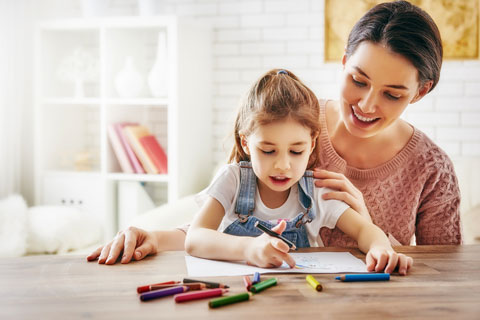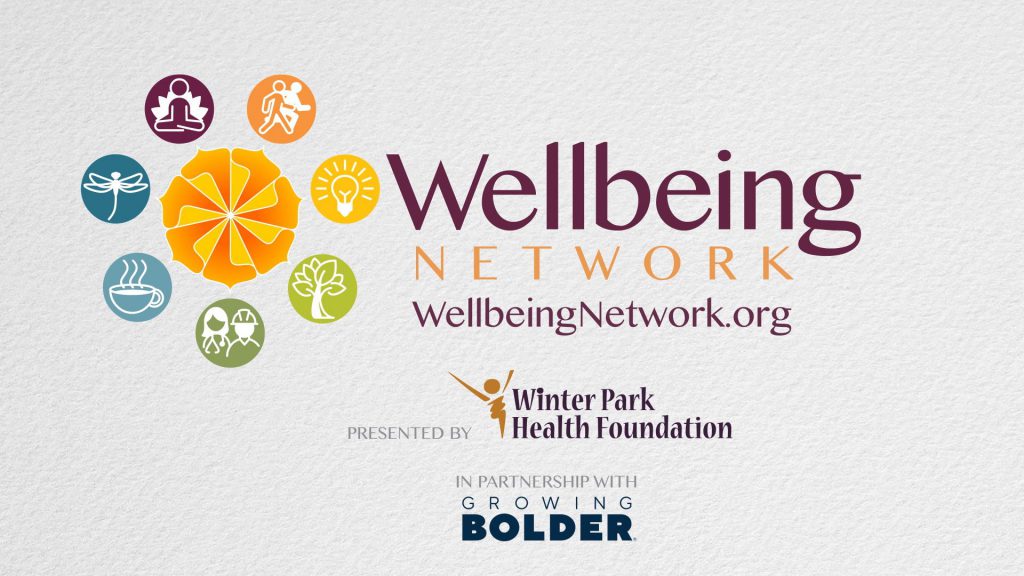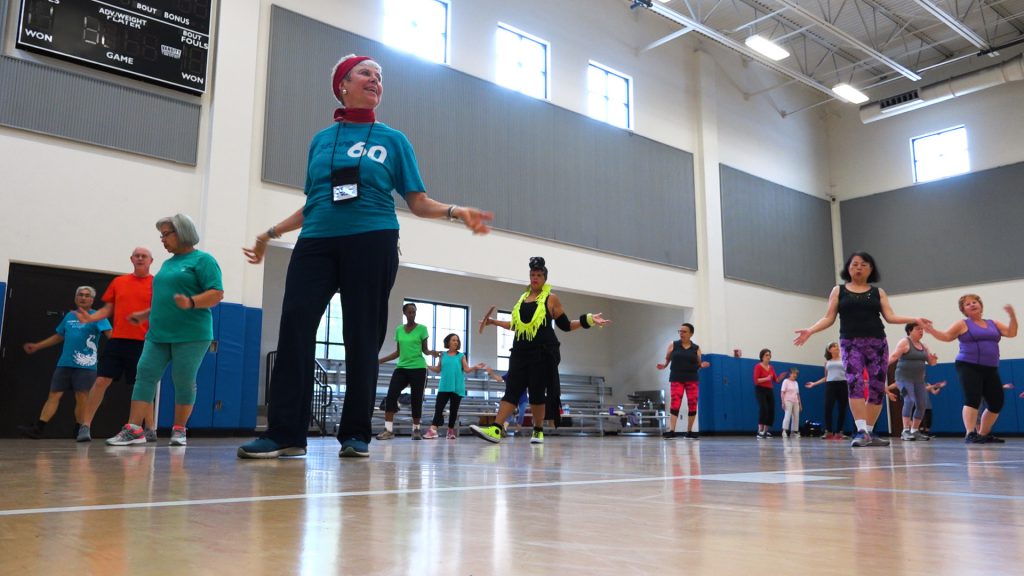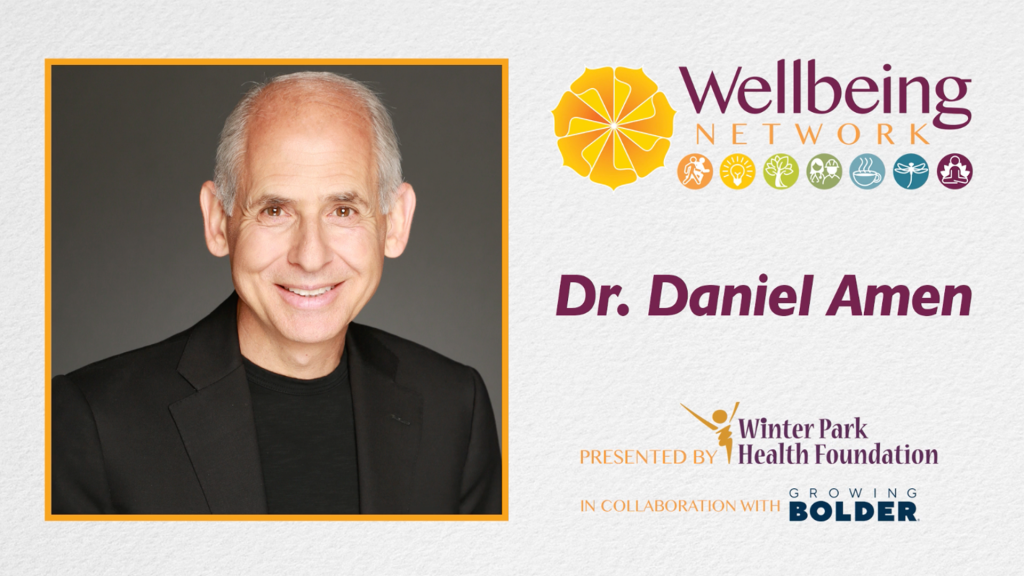BLOG – Time-In for Kids and Time-Out for Parents
Posted April 24, 2020 | By lkist

Time-In for Kids and Time-Out for Parents

The week after Spring Break, my family established a plan for tackling distance learning. The second week into distance learning, my kids were not being their normal selves. They were waking up at odd hours, our normal morning routine had changed because now they were needing me more, even though their responsibilities were fewer. I was followed into every single room! My completely independent kiddos were now wanting me to sit with them and explain things I knew they were capable of doing themselves. I was becoming somewhat irritated and it took some time, but I realize now that these were bids for connection.
We all need to feel a sense of connection with others and children don’t have the awareness yet as to how to achieve this in a healthy way. They need to feel connected as a way to relieve some anxiety and know things will be ok, but they are not sure how. At the same time, we – parents and guardians – are experiencing the same emotions ourselves. These emotions create a lens to how we are experiencing our current situation. We need to help our children by helping ourselves and by creating time-ins for our kids and time-outs for ourselves.
Time-Ins for Kids:
Depending on their development stage, children may not be able to verbally express or even understand the strong feelings they are experiencing. They are looking to their trusted adults for connection, to know they are ok. They do this in a way that can be frustrating, taking normal tasks you know they are capable of and wanting you to help them. However, they aren’t looking for you to solve their problem, they are looking for connection. They want to know they are ok and they are doing a good job.
So, what does a time-in look like? Many theories talk about different ways, but I am going to mainly focus on Garry Landreth and Sue Bratton’s (child play therapists) “Be With” Attitudes. First, let’s start with setting up an expectation for both you and your child and schedule a time that works for the both of you. Letting them know that they will have their special time with you at a specific time can help them be motivated to get through their English assignment independently, knowing they will have an opportunity for connection soon.
“Be With” attitude is more than just putting away your cell phone and other distractions. It is engaging with your child through their eyes. As parents sometimes we judge our children and what they are doing and how they are performing. However, during this time we need to try our best to not engage in judgment. It is hard but clearing our minds to our own objectives and being present with just our children is important.
One way to begin this is reflecting their feelings. Simply being with and engaging in play with a child and even adults fosters a very strong connection. Be assured that during this time children might engage in play that might be a little concerning, like play relating to illness and/or death. Don’t worry — more than likely they are trying to process their emotions related to the change.
Being present can be exhausting, so it is important you take care of yourself as well. Let’s talk about time-out for us!
Time-Outs for Parents
When I work with couples, I love asking the question; “What do you think about when I say time-out?” In almost every answer, they mention behaviors related to them sending their child into “time-out,” standing in a corner, being sent to their room, etc. After a short comical discussion on partners being placed in corners with their nose to the wall, I challenge them to think about why athletes take a “time-out.” During a time-out in sports, the athletes are attending to every part of their bodies. They are taking in fluids to replenish the fluids they have lost; they are giving their bodies a physical rest; and they are stimulating their minds and finding different strategies to approach the situation based on what they have experienced. As parents and humans, we deserve to take an athlete’s time-out for ourselves, especially right now when we are running a marathon on an unpaved road.
How and often do you need a time-out? This is a personal answer for everyone. Some people need a few time-outs throughout the day, others can wait a few days. With our current situation we need a few more time-outs than we might ordinarily need during our regular life, and that is perfectly normal. One way to tell you might need a time-out is when you find yourself becoming aggravated more easily. Becoming irritated with the way someone is chewing is my indication that I need to take a break.
What you do during a time-out is important. You want to be replenishing both your physical and mental wellbeing. It is important to find a place and/or activity that provides comfort, and is realistic for you. Again, this is different for everyone. Some people enjoy solitude activities such as taking a nap, reading a book, listening to music, working on a puzzle or Lego set, drawing and/or coloring, playing a quick game of solitaire. Some might find more solace in active activities, such as taking a walk, running, swimming, dancing, etc. It’s ok to tell your family you need to take a time-out. Let them know you are doing it so that you can give them a time-in.
Be mindful of your thoughts, what you are thinking about can influence your mood and experience of the activity. Try telling yourself something positive during these activities, or just be present with where you are and what you are doing. I know my mind can wander into negative thoughts like, what I did wrong, how someone did/said something that I got upset about, or things I “should” be doing instead. Be kind to yourself and acknowledge that you have had those thoughts, then kindly bring yourself back to more in-the-moment thoughts. For me I find it helpful to find something in my present situation that I am thankful for or enjoy. This can be a little more challenging and will take some practice, but if you are kind to yourself and keep trying, I know you will succeed.
If you are concerned that taking time for yourself is taking away from something else, please be encouraged that doing so helps you to be a better parent, grandparent, friend, etc. You will be better able to connect with or understand and fill other cups, when you have replenished your own cup.
This blog was authored by a CHILL Counselor. Supported by the Winter Park Health Foundation, CHILL— Community Help & Intervention in Life’s Lessons —is a free counseling program for students in public schools serving Winter Park, Eatonville, Maitland and neighboring areas who need help with issues such as grief and loss, divorce, low self-esteem, anger management and depression



